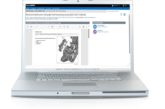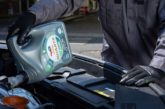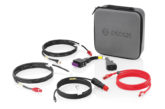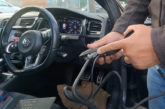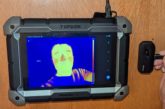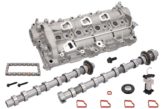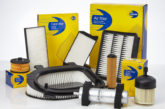The customer in question brought in his Vauxhall Astra (1.4 Gasoline 2001 Multec system) for service, complaining of intermittent lack of power/misfire. The Malfunction Indicator Lamp (MIL) would also irregularly go on and off.
The solution
The technician connected Delphi’s DS150 diagnostic tool to the 16-pin EOBD diagnostic socket to interrogate the vehicle’s fault code history. Fault codes returned were P0300 (Random Misfire) and P0301, P0302, P0303 or P0304 (Random Misfire Cylinders 1, 2, 3 or 4).
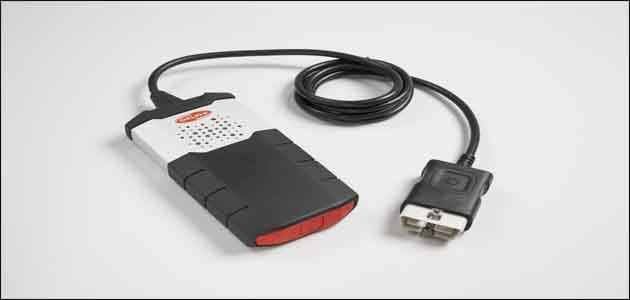
Unfortunately, each time the vehicle was investigated and fault codes cleared, no problem could be found with the usual suspects (oxygen sensors, knock sensor, etc). The Delphi oscilloscope also revealed all sensors and actuators to be within their limits at the time of each investigation. Two hours were spent during the initial investigation, but the fault could still not be easily traced.
Flight recording
The Delphi DS150 Flight Recorder mode was then set up on the vehicle and the customer was shown how to use it before each journey to-and-from work. As seen in the capture (below) the Coolant Temperature Sensor (CTS) was intermittently failing, even though no CTS fault code had been recorded. The vehicle is an early Euro 3 system and the failure was never long enough to register a CTS fault. When it did fail on the road, the fuelling registered too far lean or rich, resulting in the intermittent lack of power and misfire problems.
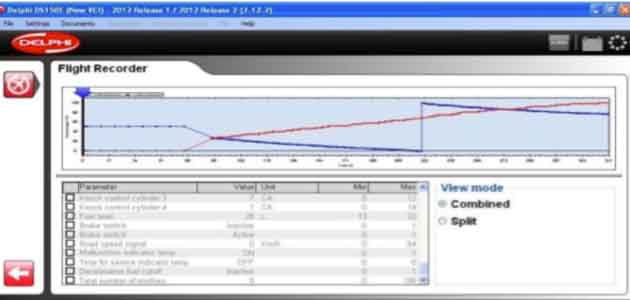
Temperature and output voltage performance of the customer’ s coolant temperature sensor * Flight Recorder mode used. V ehicle driven for 200+ seconds * Fault codes P0300 (Random Cylinder Misfire) and P0302 (Misfire Cylinder 2) recorded * Vehicle performance erratic and occasional lack of power
A replacement CTS was fitted and the final step for the technician was to reinterrogate with the DS diagnostic tool and clear all fault codes to confirm the fault was eliminated. The vehicle was now running as it should, the customer was happy and the DS150 Flight Recorder option allowed the technician to ensure the repair was carried out correctly and efficiently the first time.
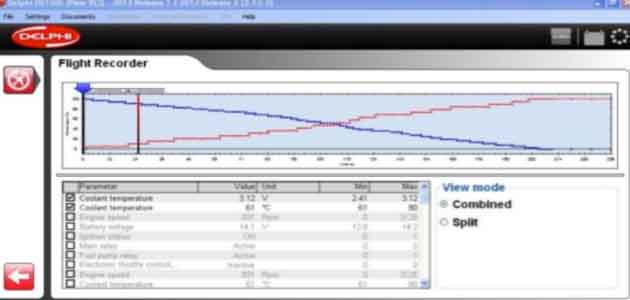
Temperature and output voltage performance of a functioning coolant temperature sensor * Flight Recorder mode used. Vehicle driven for 200+ seconds * No fault codes recorded * Vehicle performance satisfactory
Conclusion
Without the Delphi DS150 flight recorder option, the technician would only have been able to react to what he saw in his workshop. No CTS fault codes were recorded during that time with the voltage and temperature output signals remaining within the maximum and minimum limits.
Furthermore, without the flight recorder, extra hours would have been spent changing parts individually (spark plugs, coil pack, gasoline injectors, O2 sensors and the catalytic converter), until the fault was accurately identified. Instead of spending hours troubleshooting, by installing the Delphi DS150 flight recorder, the time spent during service and repair was an additional 35 minutes.

